Memory, myth, & the ghost of Sylvia Plath
Our innate urge to create coherent narratives can be overwhelming, but truth matters.
I spent last week tearing up my kitchen floor. The house was built in 1868, the year W. E. B. Du Bois was born a few blocks away. Under the 1980s vinyl tiles and plywood, I found white-oak boards, just like the finished hardwood floor in the rest of the house. While I wait for the professionals to refinish it, I’m living with the checkered past of a house that has seen good times and bad.
NOTE: My new inbox has been filtering email responses incorrectly and I didn’t see dozens of emails about my recent letters until a few days ago. My apologies! The problem is still not fixed, but at least I know where to look. You can comment here and I’ll always see that, or use Reply to write directly.
There are patches where two rooms were thrown together, and some of the old boards are stained with splodges of who-knows-what liquid.
This discovery fit perfectly with the questions on my mind, about how to get to the truth about the past, and how to deal with the unattractive aspects of admirable characters or otherwise appealing stories.
It always makes me smile to think that Valerie Eliot, T. S. Eliot’s second wife, was responsible for Andrew Lloyd Webber’s million-dollar song, “Memory.” As I’ve researched her life, memory is a constant theme because writing biography and memoir depends on recollection, and on accounts written long after the events they record.
It's so easy to leave me
|All alone with the memory | Of my days in the sun
As a result, I have learned a lot about memory, and that’s what I’d like to share with you today.
Human memory as a source of factual information is far more problematic than I realized. I’m not talking about lies, deliberate distortion of the facts, but about simple recall.
Our brains are remarkable recording instruments and it is sometimes possible to bring old, and accurate, memories to the surface. (The best way to improve recollection seems to be closing your eyes.) But memory is faulty, as criminal justice professionals are realizing. In fact, researchers have found that it’s possible to create memories by showing photographs and making suggestions.
And human beings are storytellers. We often make ourselves the heroes of the stories we tell and retell. We polish away rough edges, and create narratives that make sense, or fit into fairytale or rags-to-riches or other well-known narratives.
For example, I was recollecting two events in my past: a period of months when I was engaged in an intense love affair by letter across the Atlantic and a springtime when I was dallying with a man in London - not an affair exactly, but definitely more than a friendship. Last week, as I pulled nails out of the plywood on my kitchen floor, it struck me that those things happened at the same time, during the same period. I had not forgotten the dates, but I’d airbrushed the story in my mind to focus on the man I’d been corresponding with because that relationship had greater impact on my life.
The truth, as I now see it, is not exactly the pure and devoted love story that took shape in my mind. (And see what I just did: I placed that experience of memory in my week of kitchen renovation, when in fact it came to mind last month. But doesn’t it fit better in the letter you are reading?)
Why do these questions matter in 2021?
For one thing, we’ll soon be telling stories about what happened during the pandemic, and during a period when democracy in the United States was under unprecedented threat. It is all too easy for humans to forget. I already have to remind myself that in 2020 we faced a global pandemic and a crucial, terrifying presidential campaign in the United States. I hope we can remember the ways in which we personally failed to act, or moved too late, as well as the terrible things those on the other side of the political spectrum did. Forgetfulness would be dangerous now.
But scary experiences do often slip out of memory. I’ve been surprised by how little those who lived through World War 2 remember about the anxious atmosphere of those days, or what daily life was like. Novels published during or shortly after World War II, as well as letters written then, provide specific information that has been forgotten by people who were actually there. The Bomb and fears of nuclear war are often in the background in novels written in the 1950s and 1960s. (The same was true of the 1918 flu epidemic, as I explained in A Letter is Better: Love and Remembrance.)
Even recent memories are problematic. I remember arguments with a boyfriend that would begin with some minor exchange - one of us snapping something, the other responding sharply - and escalate into a debate over exactly who started it, who said what and in what tone, with what inference or hidden insult. We argued over exact phrasing: quite literally over what he said or she said.
I was young and it upset me that we didn’t see the same truth (mine, of course). I would think, “If only we had a recording, I could prove that I am right, that he was wrong.”
Then came Google and hand-held audio recorders. I had techie friends who thought we would soon be wearing computers that would record everything we did and said. The history would be certain. It would be on tape, stored for posterity.
That possible future totally changed my thinking about having righteous moments recorded. I knew that there were plenty of things I wouldn’t want recorded, not just things that were intimate, but all the times I said something stupid or mean.
That didn’t happen (except, perhaps, at the NSA). Instead, we have Facebook, where only our shining moments are recorded.
And they will vanish, lost in a deluge of data.
This, I think, is why so many people are writing family histories and memoirs, and why books continue to be so important. How else can we record the ways in which our ideas and beliefs have developed, how we felt at different stages of life, who we are and what our lives mean? I see why Sophia Mumford, the other literary wife I’m writing about, felt so strongly in her nineties that she wanted to tell her own story in her own words after having been written about by other people.
Music and other forms of art are expressive, of course, but it’s in words that we capture, as precisely as we can, the experience of our lives.
After doing some research about memory, however, I am amazed that we trust other people’s statements about the past. In the case of Valerie Eliot, T. S. Eliot’s second wife, even a scholarly biographer like Lyndall Gordon has relied only on Valerie’s own account of her engagement and marriage. Any personal documents she left behind are still locked in the London flat where I worked with her. The publishing firm Faber & Faber has had a staff archivist for decades, so I had hoped to get some information about Valerie’s work as T. E. Eliot’s secretary, but when I inquired the archivist wrote that they had nothing about her. That wasn’t true, since a few details from her personnel file appeared in the book Faber & Faber: The Untold Story.
That book is a good example of how history is altered, in this case by a cover that includes Sylvia Plath, who was not, while living, a Faber & Faber author.
It was only when I happened to read a note of condolence sent to Ted Hughes, her estranged husband, in 1963 that I realized Fabers had not been her publisher. Yet she is portrayed at the firm’s famous editorial table with Eliot, Spender, Heaney, and various others. The Plath included in the drawing is a ghost. She’s even wearing the headband she wore in her 1956 wedding photos. Read the full story.
I have written to the author and the firm about this misappropriation of Plath’s story, but so far I’ve had no reply. I really hope that it will be corrected. It’s especially poignant to me because something of the same misappropriation, by Valerie Eliot and Faber & Faber, applies to rights to the work of T. S. Eliot’s first wife, from whom he was separated for many years before her death. (See Carole Seymour-Jones’s Painted Shadow for a mildly worded account of the legal drama over Vivien Eliot’s papers, left to the Bodleian Library.)
The Faber & Faber history is a reminder that we need to be alert to the ways in which stories are told and rewritten in order to absolve one person of blame or responsibility, or to give credit to someone else.
If you have a way to test your memories of the past, I’d love to hear about what you discover. You may have an old diary or letters so you can compare your memories to the written evidence. Ask older people for details about things they wouldn’t have recalled before.
Sometimes a fresh memory appears, which always seems to me more credible than things that have been endlessly rehashed. For example, I said to my mother that when I talk about the Train Campaign I tell people I never rode a train till I was 19 and moved to England. She thought for a minute and said, “No, we took the train once.” She pondered. “It was when,” and I could almost see the picture unrolling in her mind’s eyes, “you and David were babies. We were still in Indiana and we took you to see Chris’s parents.” Then she laughed. “And someone came by looking for a bridge player and I said I’d go, and left your dad with the babies.” She remembered a train journey, I think, because it brought to mind a rare moment when she’d asserted herself.
How best to push someone to remember something new and true? You’ll find some tips below.
1. Some witnesses are more reliable than others. This may have a cognitive explanation, but some people lie without apparent guilt. As they talk, they come up with whatever they think will make the sale. (I’m thinking of people I’ve known, but of course it also applies to the previous US president and many politicians.) Other people, like Valerie Eliot, are what biographer Carl Rollyson calls a mythomane, as I recounted in Telling Our Stories, Writing Our Lives.
2. Contemporary records, even if subjective, are more trustworthy than later memories. I have quite a few memoirs written by people who knew T. S. Eliot, and while they sometimes contain useful details, I don’t rely on them unless I have corroboration. Corroboration means consistent accounts of the same event, by people who having spent the intervening decades talking to each other. Biographer Deirdre Blair told me she never used a fact unless she could verify it from five sources. I don’t believe that was possible, given her subjects, but she at least was more concerned than some biographers about verifying the information she put in her books.
3. Our memories are selective and unreliable, and can be influenced by suggestion and especially by visual images. Our innate urge to create coherent narratives can be overwhelming. This podcast explains how we distort memory, and also how we can improve, protect, and scaffold it.
4. Close your eyes. That seems to be the single best way to prompt memory. Here’s an article by Tim Hollins of the University of Plymouth, “How Can We Help Witnesses to Remember More?” He’s thinking of legal evidence, but this applies to any research that relies on witnesses, including the writing of family histories.
5. Involuntary memories are real, but limited in scope. You’ve probably been told that smells trigger memories. A song might do the same thing. But this type of memory is not as potent as people often imagine: Proust's Madeleine Study Argues The Episode Is Only Kinda Accurate.
The episode of the madeleine, near the beginning of Swann's Way, is far and away the most famous part of Marcel Proust's epic novel In Search of Lost Time. You're probably familiar with its outlines, even if you've never read a word of Proust: the grownup narrator eats a madeleine dipped in tea, and it reminds him so much of childhood afternoons at his aunt's home in Combray that his mind summons a freight train of images and stories from decades earlier in his life, sparking more than 3,000 pages of recollections.
Finally, should we feel guilty when we get something wrong? Politicians are castigated when they’re caught lying about their own history. But author Malcolm Gladwell produced a podcast called “Free Brian Williams,” defending the journalist Brian Williams for misremembering events, which led to his suspension from TV. What he did is not unlike Valerie Eliot’s putting herself into other people’s stories. It’s worth listening to the podcast for the account of testing people’s memories of where they were and what they did on 9/11 2001 in New York City. Maybe this is what’s made me so compulsive about keeping a diary!
I’ve had loads of response to my last letter, about zombie publishing, and I’m hoping to be able to announce something coming to life before long. But I forgot to use the wonderful zombie photo I found on Unsplash.


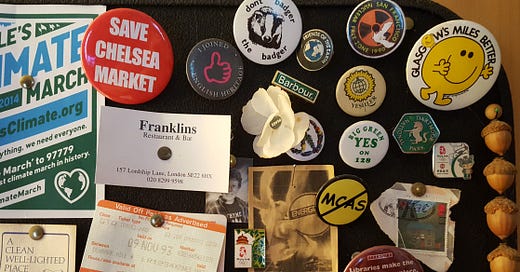



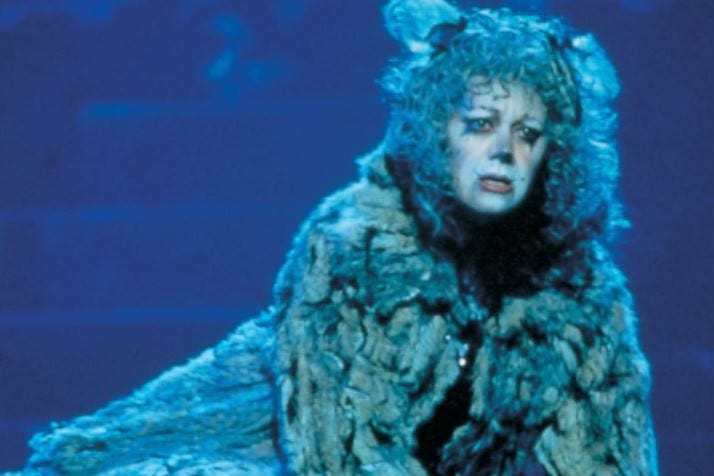
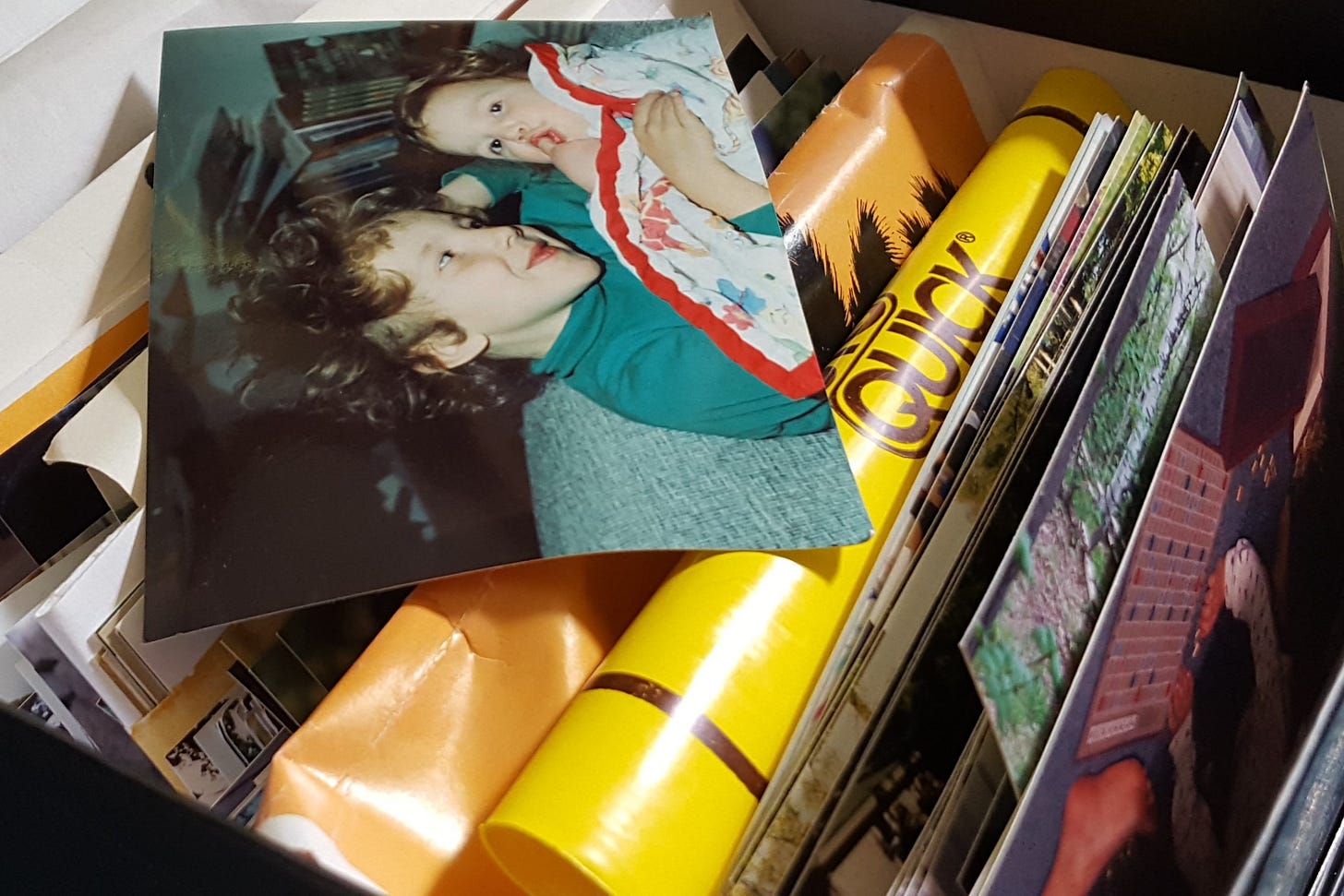
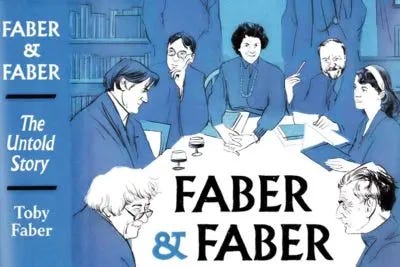
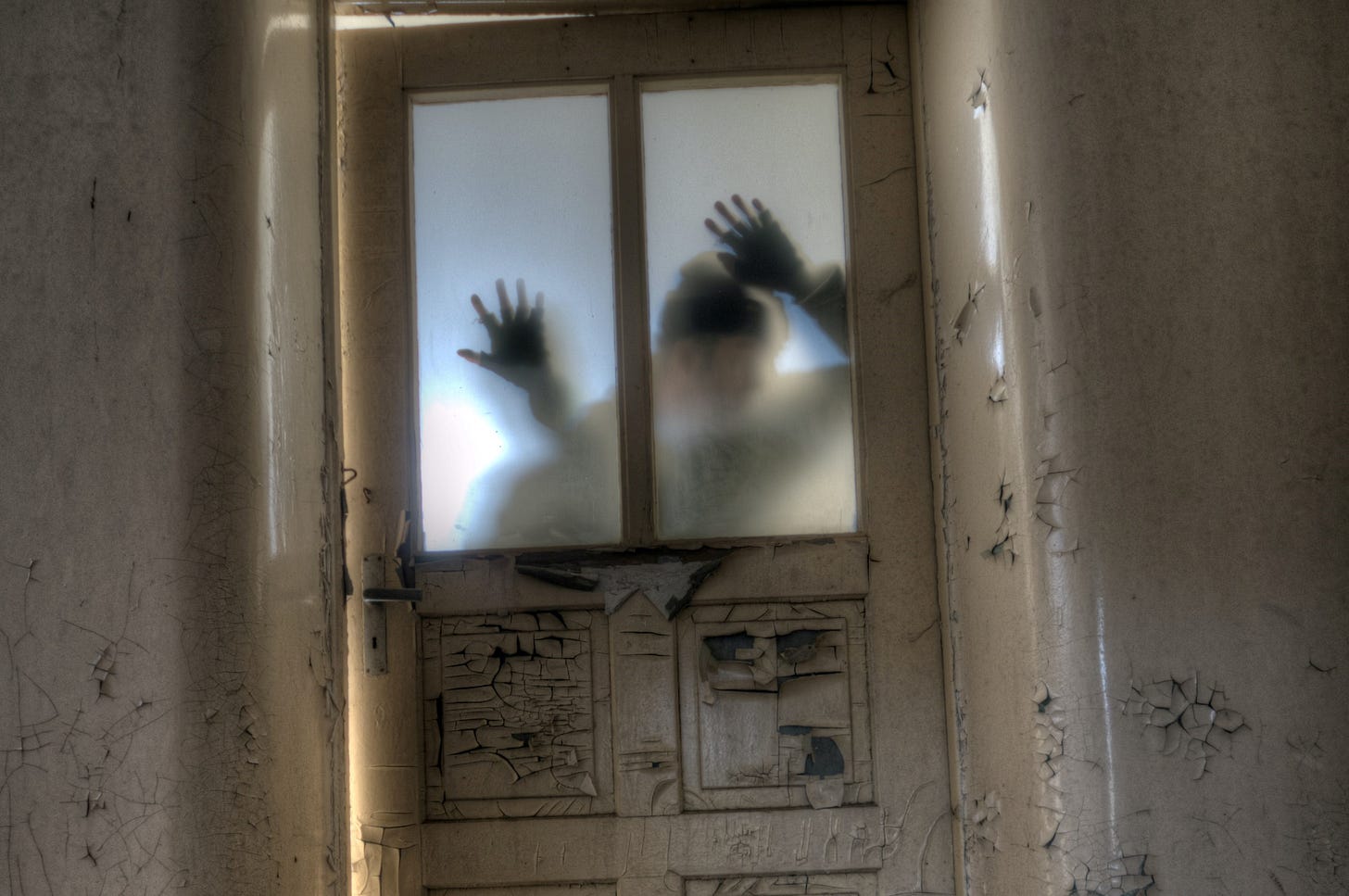

Hi Karen -- (1) I'm astonished by the breadth of your interests and knowledge; (2) I read your last letter on publishing and couldn't agree more. Particularly re the lackadaisical pace, inept editing, and lack of sales support of even the most prestigious publishers (unless the author is a past President or has won the Booker). (3) Back when I practiced law, I was mostly in civil litigation, where documents are always more important than witnesses. But all the criminal classes studied Elizabeth Loftus's work on the unreliability of witnesses, and learned to tear witnesses apart. Detectives love eye witnesses, but they are most successfully used against those too poor to hire effective counsel. I'll be moving to California in the near-future as my work with the Bullitt Foundation slowly tapers off. I'm not absolutely sure how I got to be on your mailing list, but I enjoy your very candid writing and would like to exchange my Bullitt email address (which will end) for denis@denishayes.com, which will probably survive as long as I do. Oh, and for what it's worth, I agree with your "but truth matters." It's hard to me to conceive that Brian Williams (whom I liked better than most news readers) simply misremembered having been shot at. As one commenter noted, it was like having watched the Twin Towers collapse on television and then telling people you were on the 50th floor. --Denis--